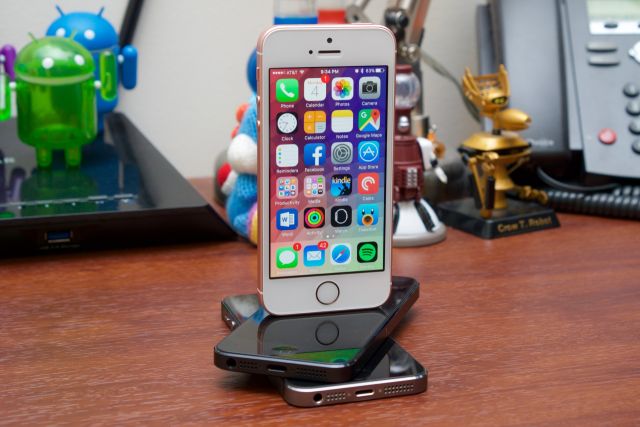 Last year the UK Government announced a plan to increase the maximum prison sentence for online copyright infringement to ten years.
Last year the UK Government announced a plan to increase the maximum prison sentence for online copyright infringement to ten years.
The current maximum of two years is not enough to deter infringers, lawmakers argued.
The plan followed a recommendation put forward in a study commissioned by the UK Intellectual Property Office (IPO) a few months earlier.
This study concluded that criminal sanctions for online copyright infringement could be increased to bring them into line with related offenses, such as counterfeiting.
Before implementing the changes the Government launched a public consultation, asking for comments and advice from the public. But, even though the vast majority of the responses urged the authorities not to up the prison term, lawmakers decided otherwise.
As a result, a new draft of the Digital Economy bill published this week extends the current prison term from two to ten years. The relevant part amends the Copyright, Designs and Patents Act 1988, and simply replaces the word two with ten.
The new bill was unveiled in Parliament yesterday where it passed its first reading. If adopted in its current form, it allows courts to hand out tougher sentences.

Copyright holders have lobbied for this update for a long time. According to them, harsher penalties are needed to deter people from committing large-scale copyright infringement, something the Government agrees with.
“The Government believes that a maximum sentence of 10 years allows the courts to apply an appropriate sentence to reflect the scale of the offending,” the Government explained previously, adding that the maximum sentence will only be applied in rare cases.
This means that casual file-sharers are not likely to end up in prison for a decade. However, organized groups that systematically offer pirated files, such as Scene or P2P release groups, are likely to be punished more harshly.
One of the motivations to up the sentence for online piracy is to bring it on par with counterfeiting. Interestingly, however, both were already equal when they were first adopted.
When the Copyright, Designs and Patents Act was first introduced both counterfeiting and piracy carried a maximum sentence of two years. Following industry calls the counterfeiting sentences were increased in 2002, and now the piracy side has followed the same path.
Source: TF, for the latest info on copyright, file-sharing, torrent sites and ANONYMOUS VPN services.

 Der Bundesrechnungshof kritisiert, dass die Bundeswehr für ihre IT-Tochter deutlich zuviel Geld bezahle und keine Überwachung der Netze auf Missbrauch durchführe. Der Vorgänger des Unternehmens BWI war bereits für das Projekt Herkules verantwortlich, das hohe Mehrkosten verursacht hatte. (
Der Bundesrechnungshof kritisiert, dass die Bundeswehr für ihre IT-Tochter deutlich zuviel Geld bezahle und keine Überwachung der Netze auf Missbrauch durchführe. Der Vorgänger des Unternehmens BWI war bereits für das Projekt Herkules verantwortlich, das hohe Mehrkosten verursacht hatte. ( Beim Aufspüren und Sperren urheberrechtlich geschützten Materials arbeiten die Algorithmen von Youtube inzwischen recht effektiv. Mit einer neuen Masche sind sie überfordert: Uploader verstecken Kinofilme offenbar immer öfter in VR-Filmen. (
Beim Aufspüren und Sperren urheberrechtlich geschützten Materials arbeiten die Algorithmen von Youtube inzwischen recht effektiv. Mit einer neuen Masche sind sie überfordert: Uploader verstecken Kinofilme offenbar immer öfter in VR-Filmen. (
 Mecklenburg-Vorpommern zieht derzeit die Mehrzahl der Förderbescheide für den Ausbau von Glasfaser in Deutschland auf sich. Jetzt wurden weitere 67 Anträge von dem Land eingereicht. (
Mecklenburg-Vorpommern zieht derzeit die Mehrzahl der Förderbescheide für den Ausbau von Glasfaser in Deutschland auf sich. Jetzt wurden weitere 67 Anträge von dem Land eingereicht. (

 Innerhalb der nächsten zwei Tage möchte AMD eine neue Radeon-Software veröffentlichen, die dafür sorgt, dass die Radeon RX 480 weniger Leistung aus dem PCIe-Slot aufnimmt. Der Treiber soll zudem in ausgewählten Spielen die Bildrate minimal steigern. (
Innerhalb der nächsten zwei Tage möchte AMD eine neue Radeon-Software veröffentlichen, die dafür sorgt, dass die Radeon RX 480 weniger Leistung aus dem PCIe-Slot aufnimmt. Der Treiber soll zudem in ausgewählten Spielen die Bildrate minimal steigern. (